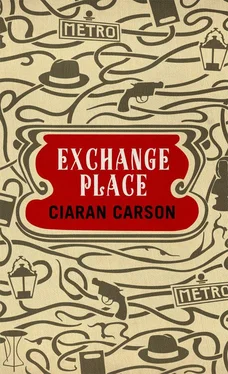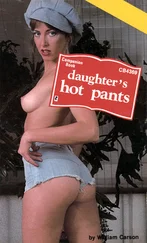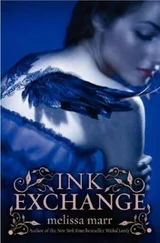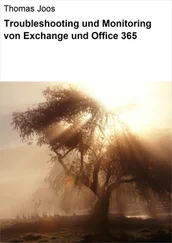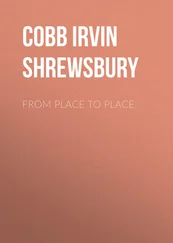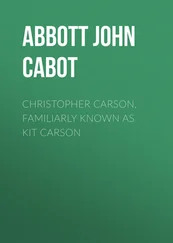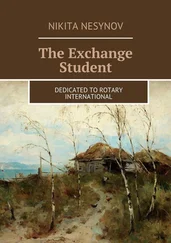Translation is the ‘removal or conveyance from one person, place, time, or condition to another; the removal of the remains of a famous person, esp. a saint, to another place; the movement of a body or form of energy from one point of space to another; the action or process of expressing the sense of a word, passage etc., in a different language; the expression or rendering of something in another medium, mode, or form of expression.’ And it occurred to me that reading is itself a form of translation, for every reader must interpret what he or she reads, visualizing the action or the scene described in his or her own way. The text is a series of stage directions, and we furnish the crime scene — the locked library room in a murder mystery, say — with the props of memory and genre, memories of real libraries we have been in and memories of other libraries in other murder mysteries. Each of us enters the room in the book in our own way. Each listener hears a different music, just as each of us is not only who we think we are, but the person seen and thought into being by others. Eyes staring at one’s back. Meeting of glances. We are others in the eyes of others. I am many John Kilfeathers. I could feel the dope talking, so I looked it up, dope from Dutch doop , sauce, from doopen , dip, mix, adulterate. I thought of Dutch painting, colours mixed on a palette, scumbled into one another to become another, and the smell of oil paint entering the brain through the nostrils, down the neural pathways, reconfiguring the dendrite fractals in a fugue of variant and deviation.
Fugue is also ‘a flight from or loss of the awareness of one’s identity, sometimes involving wandering away from home’. I recalled the once celebrated case of Charles Burns of Belfast, County Antrim, a funeral director and a lay preacher. To all appearances he was a happily married man with a large and devoted family. On 17 January 1887, the day after his fiftieth birthday, Burns withdrew his life’s savings from the local bank, and disappeared without so much as a word to anyone who knew him. After some weeks of ineffective police investigation, his family hired a private detective, John Strange, to look deeper into the matter; some six months later, Strange found him in Westport, County Mayo, working under the name of Cathal O’Byrne as the proprietor of a lodging house. However, when confronted with photographic evidence of his real identity, Burns refused to acknowledge it, saying he had always been Cathal O’Byrne and that the photograph bore no relation to his features. He immediately took the photograph from my hand, said Strange, and went over to the dining-room mirror. Looking alternately at mirror and photograph, he said over and over, How can you say this is me? I am not that man, I am this man that you see before you; and as he did so, said Strange, his eyes met mine in the mirror. There was an uncanny light in them, as if someone else was looking out through those eyes. It sent quite a chill through me, said Strange. According to Strange, Burns expressed a horror of his alleged existence as a funeral director, saying that he was perfectly happy catering to the living; indeed, he was a popular figure in Westport, and all who knew Cathal O’Byrne testified to his good character, and the grace and civility with which he conducted his affairs. Strange sought the advice of the local constabulary, who, after consultation with their colleagues in Belfast, corroborated that this was indeed Charles Burns, late of Belfast. The good news was telegraphed to the family. It was decided for his safety to confine Burns to a room of his own lodging house until the family came to reclaim him. Alas, when they arrived, and the door of the room was unlocked, they found him dead. The body bore no marks of violence, self-inflicted or otherwise; he appeared to have passed away from heart failure in his sleep. It was, speculated Strange in his summing up of the case, as if Cathal O’Byrne, unable to countenance that he was indeed Charles Burns, had willed Burns to die. To sleep, perchance to dream. There were, he concluded, more things in heaven and earth than are dreamt of in our philosophy.
Kilpatrick felt a tap on the back of his hand. Kilpatrick? said Gordon. Kilpatrick looked up and met Gordon’s eyes. For the first time he noticed that they were green. You can stop listening now, said Gordon gently. Kilpatrick came to. Where was I? said Gordon. Yes, said Gordon, I was speaking of the interlocutors. The members of the club. As it happens, I picked up an odd volume of Emerson’s essays the other day in Passage des Panoramas, and when I opened it my eye fell on a sentence that seemed very apropos. Library angel sort of thing, you feel some higher power has intervened. Call it coincidence if you will, but then in our line of business there is no such thing as coincidence. Anyway, essay entitled ‘Clubs’. Discourse, says Emerson, when it rises highest and searches deepest, when it lifts us into that mood out of which thoughts come that remain as stars in our firmament, is between two. We apply that sentiment as a rule. Tête-à-tête that is. You spoke of a John Bourne earlier, said Kilpatrick. Ah yes, Bourne, said Gordon, a long story. Tell you what, why don’t we do this in the spirit of Les Caves, said Gordon, you can tell me your story first, then I’ll reciprocate. You did know a John Bourne in Belfast, did you not? Kilpatrick nodded, took a sip of absinthe, and began.
I seemed to know John Bourne before I met him, said Kilpatrick. I guess there would have been prior talk of him in the circles I moved in, so maybe that’s how I picked up that impression. From elsewhere rather than from myself. We are wont to do that, are we not? And Gordon nodded sympathetically. At any rate when I did meet him, and really got to know him, I was beguiled by him, said Kilpatrick. About my height, about five foot eight, dark hair flopping over one eyebrow, somewhat sallow skin, a Roman nose a trifle too prominent for his face, ears likewise, he was not conventionally handsome, but he had presence, and when he smiled that broad smile of his, it seemed to illuminate one’s own face besides his own. I first met him in the Crown Bar in the seventies, I spoke of it before. And one thing led to another. I became his friend, he mine. Perhaps everything seems inevitable in retrospect, but so it was. Why was I attracted to him? I can only answer, because it was he, because it was myself. We were each other’s fate.
Your Bourne is an artist, you say. So is mine. I used to frequent his attic studio at Exchange Place in Belfast. Have you ever been to the Hugh Lane Gallery in Dublin? Some years ago the entire contents of Francis Bacon’s attic studio at 7 Reece Mews in London, from the very plaster of the walls down to the floorboards, were removed and painstakingly reconstructed in Dublin, the floor ankle-deep in archaeological layers of printed materials, photographs, posters, champagne boxes in various states of decay, torn, crumpled or trodden on; everything, including the walls and door, spattered with paint, pots of paints and brushes here and there amid the chaos. When I visited the gallery last year I was forcibly reminded of Bourne’s studio. One of the features of the Bacon studio is a big round art deco mirror propped on a table, the glass covered in hundreds of pockmarks where the silvering has degraded. When Bourne went to view the attic room at 14 Exchange Place, he was delighted to find in situ an old art deco dressing table with a round mirror similarly dimmed and pockmarked. I saw myself through a glass darkly, said Bourne. It confirmed that this was the place for him. He was very influenced by places, by the atmosphere of a room, and it seemed to him he had been here before, perhaps as someone else.
Читать дальше
